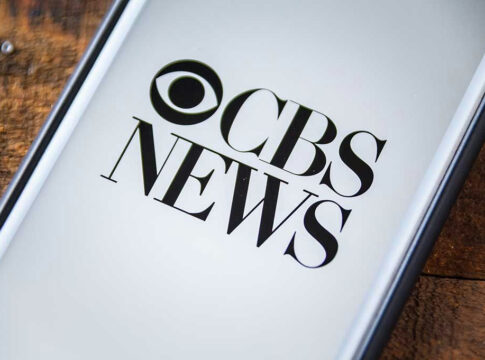In a stunning turn of events, CBS’s decision to cancel “The Late Show with Stephen Colbert” has left fans and critics alike in a frenzy, sparking wild conspiracy theories and political speculation.
The Financial Crossroads of Late-Night TV
The decision to cancel “The Late Show with Stephen Colbert” has put the spotlight on the financial realities plaguing late-night television. Despite Stephen Colbert’s dominance in the ratings, the show has been hemorrhaging money, losing about $40 million annually against a hefty $100 million production budget. This financial burden has become increasingly untenable for CBS, particularly as the entire late-night genre faces declining viewership and advertising revenue. The shift in audiences towards streaming and digital platforms has compounded these challenges, signaling a broader existential crisis for network talk shows.
https://www.youtube.com/watch?v=AuqEZx6TmfI
In this context, the cancellation of Colbert’s show is part of a wider trend in the industry. Other late-night stalwarts, including James Corden and Trevor Noah, have also exited the stage, underscoring the shrinking profitability and waning appeal of traditional late-night formats. CBS’s parent company, Paramount Global, is also in the process of merging with Skydance, which has raised eyebrows and sparked speculation about the underlying motives.
Politics and Conspiracy Theories
The timing of the cancellation has not escaped the notice of political pundits and conspiracy theorists. The announcement coincided with Paramount Global’s merger talks with Skydance, owned by David Ellison, whose father is a well-known Trump supporter. Add to this the recent $16 million settlement CBS reached with Trump over a “60 Minutes” lawsuit, and you have a recipe for rampant speculation. Democratic senators and liberal commentators have been quick to suggest that political motivations, rather than mere financial considerations, may have influenced CBS’s decision.
VIDEO THREAD: "Colbert stays, Trump must go!" demanded protesters marching to CBS headquarters Monday afternoon to oppose the firing of Stephen Colbert."
"Who will end this fascist nightmare?" they chanted. "We will end this fascist nightmare!" pic.twitter.com/c57iEvHuAA
— Ford Fischer (@FordFischer) July 22, 2025
Stephen Colbert, known for his liberal-leaning and often scathing satire of Donald Trump, has become a central figure in these theories. His vocal critiques of Trump have led some to surmise that the cancellation is a retaliatory move orchestrated by corporate interests aligned with the former president. However, despite the fervor surrounding these claims, concrete evidence directly linking Trump or the merger to the cancellation remains elusive.
The Future of Late-Night Television
As Colbert’s tenure on “The Late Show” winds down, the future of late-night television hangs in the balance. The show’s cancellation has not only stirred political and financial debates but also raised questions about the viability of the format itself. With audiences increasingly turning to streaming services and digital content, traditional late-night talk shows face mounting pressure to adapt or risk obsolescence.
NOW: "CBS Sucks" and "Colbert Stays Trump Go!" Sign at Protests Against Cancelation of Stephen Colbert Late Show in NYC
A protest Monday outside the Ed Sullivan Theater following CBS’s cancellation of The Late Show with Stephen Colbert. The group called the decision… pic.twitter.com/qUBVVHhWLY
— Oliya Scootercaster 🛴 (@ScooterCasterNY) July 21, 2025
The impact of this shift is already being felt across the industry. The departure of prominent hosts and the shrinking pool of network talk shows may signal a broader contraction or potential reinvention of the genre. For CBS, the merger with Skydance could represent an opportunity to pivot towards less politically charged content, potentially reshaping its programming priorities in the process.

